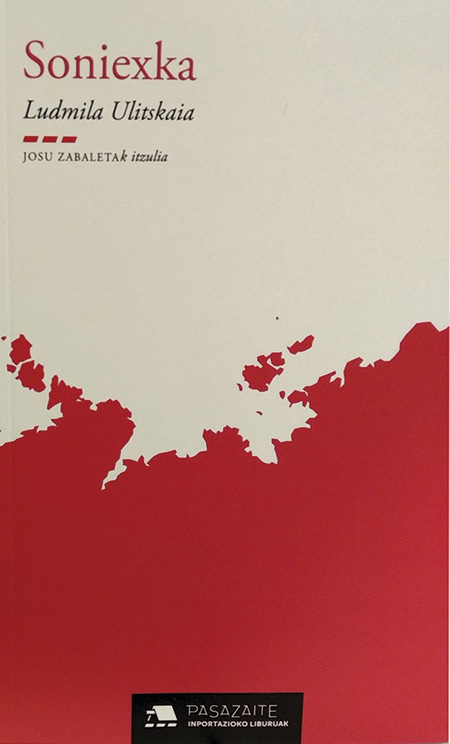

Soniexka Ludmila Ulitskaia is a short novel written in Russian in 1992 and translated by Josu Zabaleta in 2021. Among others, the contribution of the editorial Pasazaite to the Basque reader before closing the doors.
The title, Soniexka, refers to the protagonist of the book. Precisely because this makes a description of Soniexka's life, which begins when the protagonist was a child, when he loved reading, when he always had the muzzle between books. We can start by reading sentences like: “The reading of Soniexka, turned into a slight form of madness, also did not allow sleep. He seemed to read his dreams." 12). I think it's important because after getting married to Robert Viktorovix, who he knows as a librarian, he'll lose all the signs of curiosity and reading. And because the birth of her daughter Tania is going to increase the role of society, her husband and the woman waiting for Soniexka: “(…) brought the world of books that Sonia loved so much and left him unimaginable in his place the burden of daily concern of Tania and Robert Viktorovitxi, who fell ill in turn of misery, poverty and alternation” (p. 25).
Through the characters we will read the gray environment, poverty and the presence of war in Russia of the time. Furthermore, the Soviet Union highlights the fate of women ' s patriarchy: loneliness, the burden of caring for the whole family and the extinction of any signs of identity. To underline this, the author uses names and surnames whenever he appoints his husband (not rarely). So that we do not forget that it is a being with authority, presence and identity. However, Soniexka is a diminutive of Sonia's name.
The arrival of Yasia, the oldest orphan of his daughter Tania, will change the direction of the novel, giving a point of intrigue at the end. And changing the fate of that family forever, I'm not going to tell you not to spoilers. But I advance that Soniexka recovers reading.
The book is concise and intense in its short. It makes memorable descriptions, capable of generating special sensations through metaphors, comparisons and long lists.